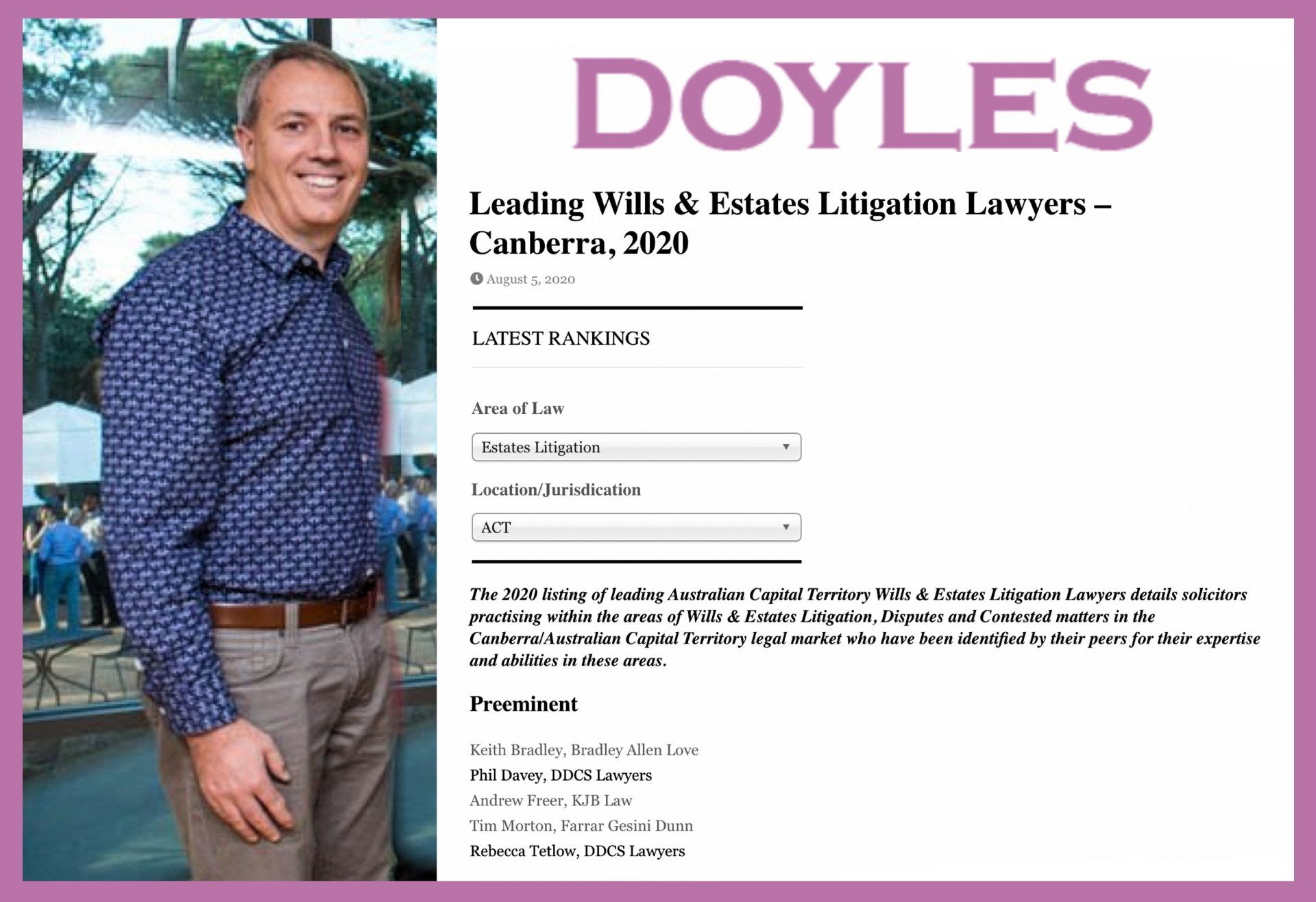10 things you may not know about estate administration | Part 2
In times of bereavement it is often distressing for members of the deceased’s family to address the issues surrounding the wishes of the deceased. It can also be difficult to try and understand the specific language used in the administration of an estate even when you aren’t trying to cope with the loss of a loved one. To help you better understand this sometimes confusing process we have prepared a short series called ‘10 Things You May Not Know About Estate Administration’.
Andrew Freer E: andrew@kjblaw.com.au
Part 2 – Ademption
What is ademption?
Ademption is a legal concept that applies to gifts of specific property made under a will. For example, leaving a gift of a specific identified painting to a friend in your will. If during your life you dispose of that specific property – either by sale or otherwise - so that at the date of your death it is no longer yours to dispose of, that specific gift is taken to have “adeemed”. Where this happens, the beneficiary gets nothing.
If the subject matter of the gift was intentionally sold by the will maker between the date of the will and the date of death, the beneficiary of the adeemed gift is usually not entitled to the proceeds of its sale.
The general rule of ademption though only applies to specific gifts – it does not apply to a gift of the whole estate or to a gift of residue.
Does intention matter?
The intention of the testator in making the disposal is generally not relevant. Thus an ademption will occur where there is a "forced" disposal such as by a transfer under a pre‑existing buy-sell provision in a shareholders or partnership agreement, a writ of execution, order of the Family Court or mortgagee sale.
Can I get around it?
An exception to the general rule of ademption exists where it can be shown that the property ceased to be part of the testator's estate because of the unauthorised action of an agent or by an unlawful act unknown to the testator.
Disposal of an asset as a result of theft, fraud, breach of fiduciary duty or similar misconduct may be capable of being set aside under general equitable principles. Setting aside the transaction may result in the asset being restored to the estate. In such a case the question of ademption, as such, would not arise: having been restored to the estate, the property could then pass under the will as if it were owned by the deceased at the time of death, subject to the liability of the property for debts, funeral and testamentary expenses.
In NSW, section 22 of the Powers of Attorney Act 2003 (NSW) sets out that beneficiaries of property disposed of before death by an attorney under a power of attorney retain certain rights and the general rule as to ademption can be displaced in certain circumstances. There is no equivalent provision in the ACT however. There is a therefore a fundamental difference between the position in NSW and the ACT.
Where this situation arises, a beneficiary may have several courses available to overcome an apparent ademption of a specific gift, including:
- applying for construction or administration proceedings on the basis of misdescription of the item subject of the specific gift, or change in name or form of that property;
- seeking to set aside the disposal on the basis that it was done so on a tortious or fraudulent basis; and
- asserting that the disposal was made by an attorney or financial manager (in NSW but not in the ACT).
The action to be taken by the person seeking to overcome the apparent ademption in the above circumstances essentially entails proceedings for construction of the will. If you are unsure how this principle may apply to your will, or are a beneficiary who is concerned that a gift to you may have adeemed, please contact the team at KJB Law on 6281 0999 to discuss.
Andrew Freer E: andrew@kjblaw.com.au
News




















